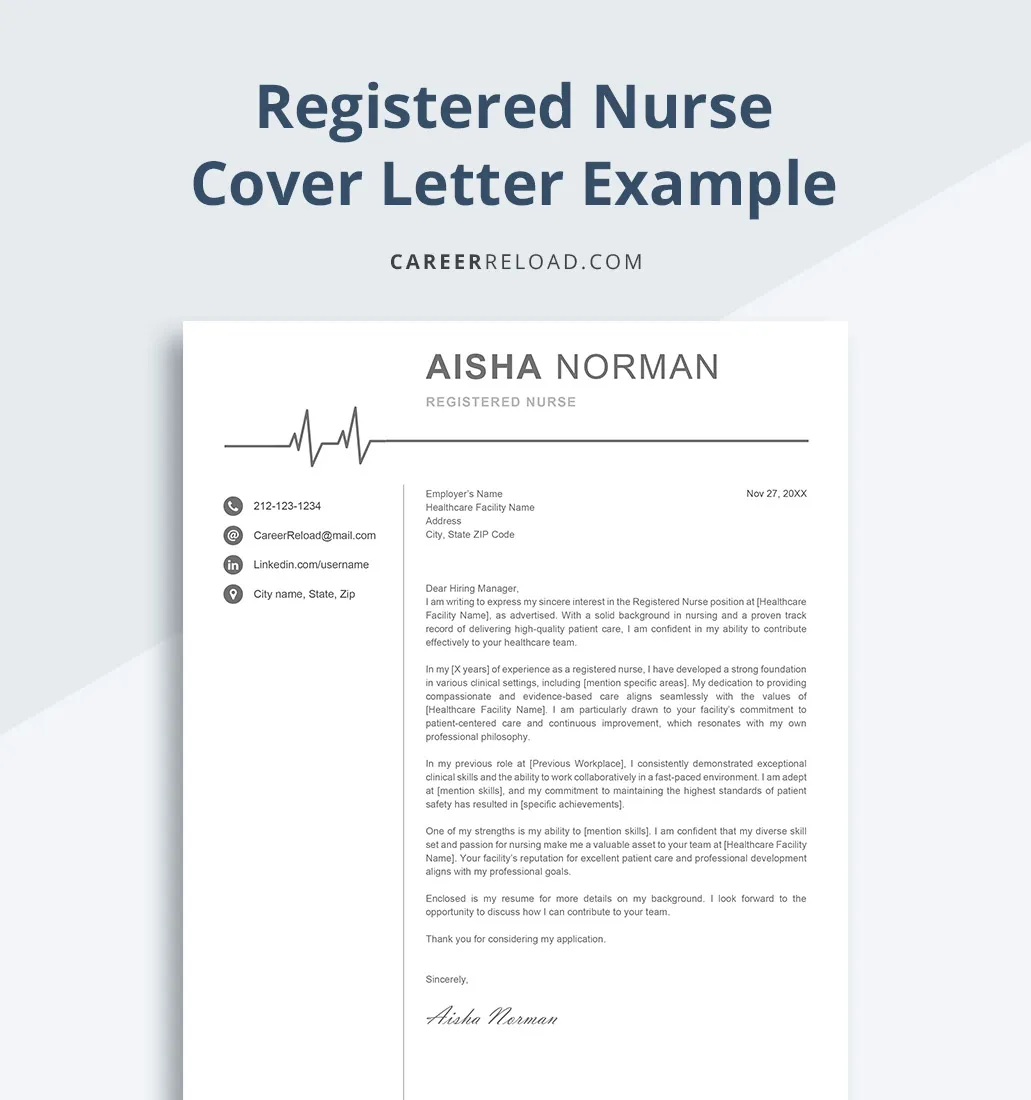Crafting a Powerful Nursing Cover Letter
A well-crafted cover letter is your first impression on a potential employer, making it a crucial element in your job application for nursing positions. It goes beyond simply reiterating your resume; it’s your opportunity to showcase your personality, passion for nursing, and how your skills align with the specific requirements of the role and the values of the healthcare facility. A strong cover letter grabs the reader’s attention, highlights your key qualifications, and encourages them to delve deeper into your application. It’s a chance to tell your story and demonstrate why you are the ideal candidate. By focusing on the aspects that matter most to the hiring manager, you can significantly increase your chances of landing an interview and ultimately securing your desired nursing position. Remember, the goal is not just to get a job, but to get the right job – one that aligns with your career aspirations and allows you to make a meaningful impact in the lives of patients.
Highlighting Your Nursing Skills
Your nursing skills are the cornerstone of your cover letter. Instead of listing every skill, pinpoint those most relevant to the job. For instance, if the role emphasizes critical care, highlight your experience with ventilators, cardiac monitoring, and rapid response. If it involves patient education, emphasize your communication skills and ability to explain complex medical information clearly. Use action verbs to describe your skills, such as ‘administered medications,’ ‘assessed patient conditions,’ or ‘developed care plans.’ This approach not only demonstrates your competencies but also showcases your understanding of the specific needs of the position. Moreover, providing concrete examples of how you’ve applied these skills in previous roles adds credibility and illustrates your practical knowledge. Tailoring this section to match the job description is critical, as it shows you’ve carefully considered the employer’s requirements and are prepared to meet them.
Showcasing Clinical Experience
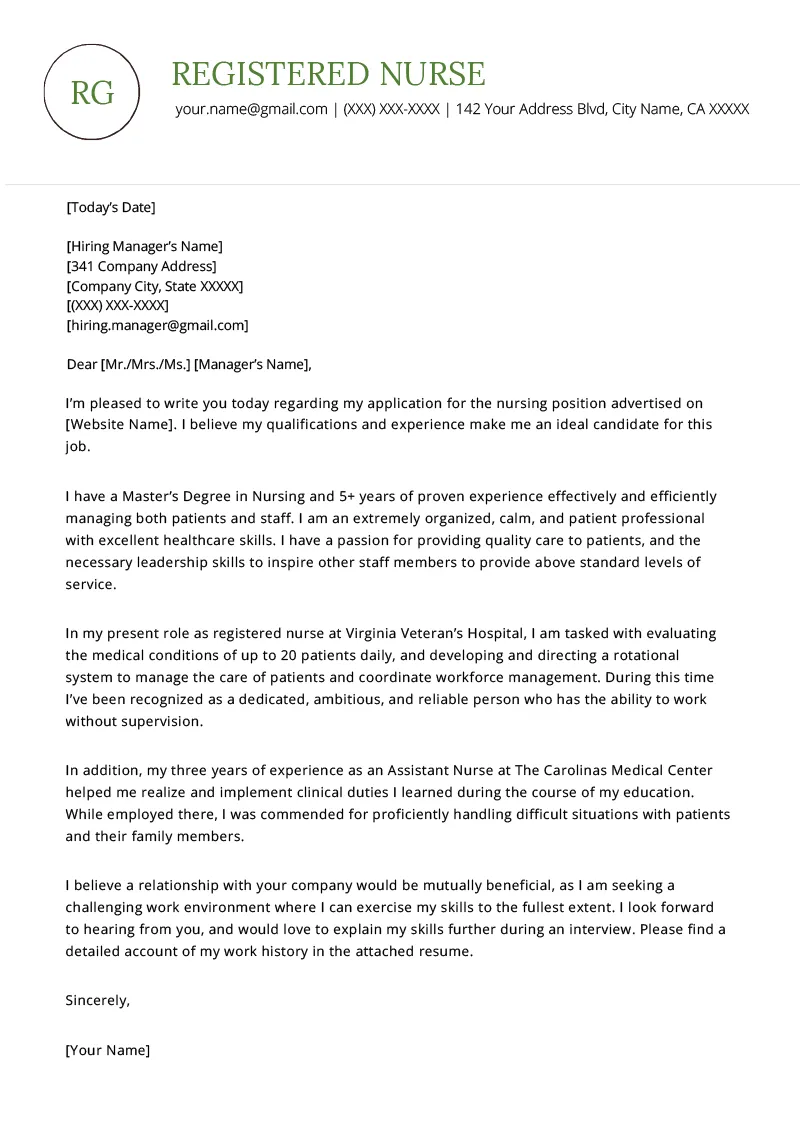
Clinical experience is the backbone of your nursing career, and your cover letter should reflect this. Mention the specific units or departments where you’ve worked, such as the ICU, emergency room, or surgical ward. Briefly describe your responsibilities and the types of patients you’ve cared for. If you have experience with specialized equipment or procedures, be sure to include those details. For example, if you’re applying for a position in a neonatal intensive care unit, highlight your experience with premature infants, ventilators, and specialized feeding techniques. If you’re targeting a surgical role, emphasize your experience with pre- and post-operative care, wound management, and assisting with procedures. The more specific you are, the better. This helps the employer quickly assess your suitability for the role. Furthermore, mentioning any certifications or advanced training relevant to your clinical experience strengthens your application.
Quantifying Achievements
Don’t just tell employers what you did; show them the impact you made. Quantify your achievements whenever possible. Instead of saying you ‘improved patient outcomes,’ state that you ‘reduced patient fall rates by 15% through the implementation of a new fall prevention protocol.’ Rather than simply saying you ‘managed a team,’ indicate that you ‘supervised a team of 10 nurses, consistently exceeding performance targets.’ Numbers and statistics add credibility and demonstrate your effectiveness. If you’ve received any awards or recognition, be sure to include those as well. Consider the specific needs of the employer and the role when identifying accomplishments to showcase. This helps potential employers understand your true value and the positive results you can achieve within their organization. Quantifiable data creates a compelling narrative.
Demonstrating Soft Skills
While clinical skills are essential, soft skills are equally crucial in nursing. These are the interpersonal and communication abilities that allow nurses to provide compassionate care and work effectively as part of a team. Your cover letter should showcase these qualities as much as your technical expertise. Employers value nurses who are empathetic, adaptable, and strong communicators. Highlighting your soft skills shows you are a well-rounded individual, capable of handling the emotional and interpersonal demands of the job. Remember, nursing is a profession that requires constant interaction with patients, families, and colleagues, so your ability to navigate these interactions is paramount. Demonstrating these skills can significantly increase your competitiveness in the job market.
Communication and Interpersonal Abilities
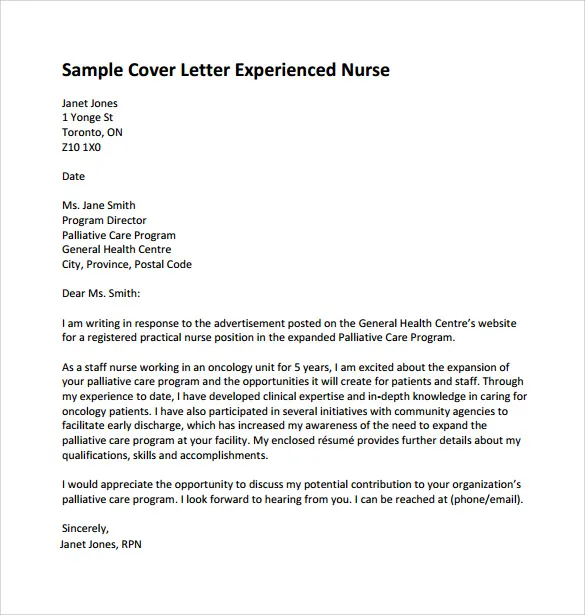
Effective communication is at the heart of nursing. In your cover letter, emphasize your ability to clearly and compassionately communicate with patients, families, and other healthcare professionals. Mention your experience in explaining complex medical information in a way that patients can understand. Detail your ability to actively listen, empathize, and provide emotional support. If you’ve ever mediated conflicts or facilitated difficult conversations, describe these experiences. Your ability to build rapport with patients, families, and colleagues is essential to teamwork and positive patient outcomes. Consider including specific examples of how you’ve successfully communicated in challenging situations. The demonstration of effective communication skills sets you apart.
Teamwork and Collaboration
Nursing is inherently a team-based profession. Your cover letter should emphasize your ability to work collaboratively with doctors, other nurses, and support staff. Describe any experience you have in leading or participating in interdisciplinary teams. Highlight your ability to share information, delegate tasks effectively, and offer and accept constructive feedback. Mention any experience in resolving conflicts or fostering a positive team environment. Employers value nurses who can contribute to a supportive and productive work environment. Provide concrete examples of your ability to work within a team to achieve positive patient outcomes or improve workflow efficiency. By showcasing these collaborative skills, you demonstrate your value as a team player.
Tailoring Your Cover Letter
Generic cover letters are easily spotted and often discarded. Tailor your cover letter to each specific job application. Review the job description carefully, paying close attention to the skills, experience, and qualities the employer is seeking. Then, customize your cover letter to address those specific requirements. Use the same keywords and phrases found in the job posting to show that you understand the role and are a good fit. This demonstrates that you’ve done your homework and are genuinely interested in the position. Highlighting how your skills and experience align with the specific needs of the employer will make a strong impression and significantly increase your chances of getting an interview. This personalized approach will ensure your application stands out.
Researching the Healthcare Facility
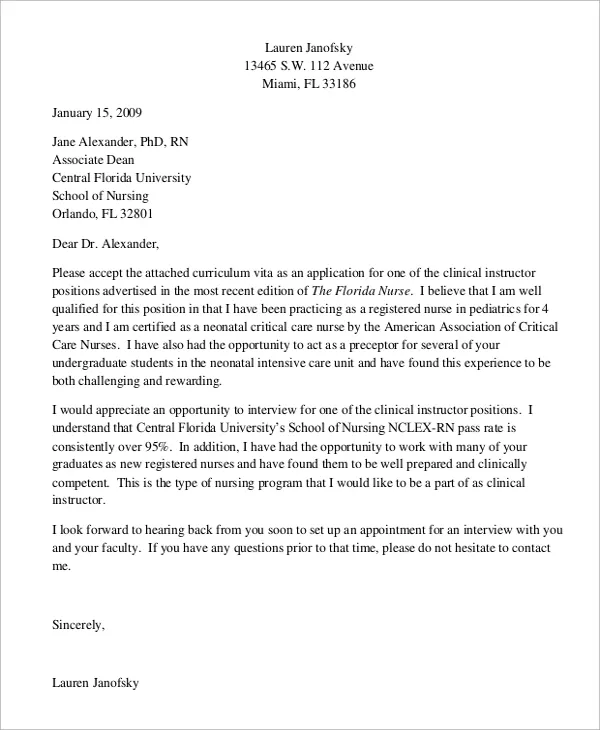
Before you start writing, research the healthcare facility. Understand its mission, values, and the services it offers. Visit its website, read online reviews, and check its social media presence. Use this information to personalize your cover letter and demonstrate your genuine interest in the organization. Mentioning specific programs, initiatives, or values that resonate with you shows you’ve taken the time to learn about the employer and that you’re a good fit. Tailoring your cover letter to match the organization’s culture demonstrates your understanding of their values. This level of detail sets your application apart and increases your chances of being noticed. This research also shows that you are dedicated to the process and have an interest in the company.
Matching Skills to Job Requirements
Carefully review the job description and identify the key requirements. Then, use your cover letter to explicitly connect your skills and experience to those requirements. Provide specific examples of how you’ve used your skills to achieve positive outcomes in previous roles. For example, if the job description mentions a need for experience with electronic health records (EHR) systems, describe your proficiency with the specific EHR used by the healthcare facility. If the job requires experience in a certain clinical setting, highlight your relevant experience in that setting. The more closely your skills match the requirements, the stronger your application will be. This targeted approach demonstrates that you are not only qualified but also the ideal candidate.
Formatting and Presentation
The format and presentation of your cover letter are just as important as its content. A well-formatted cover letter is easy to read and reflects professionalism. Poor formatting, typos, and grammatical errors can detract from your message and give the impression that you lack attention to detail. Before you send your cover letter, ensure it is impeccably formatted. The goal is to make your letter easily digestible and visually appealing. This shows that you care about making a good impression.
Formatting for Readability
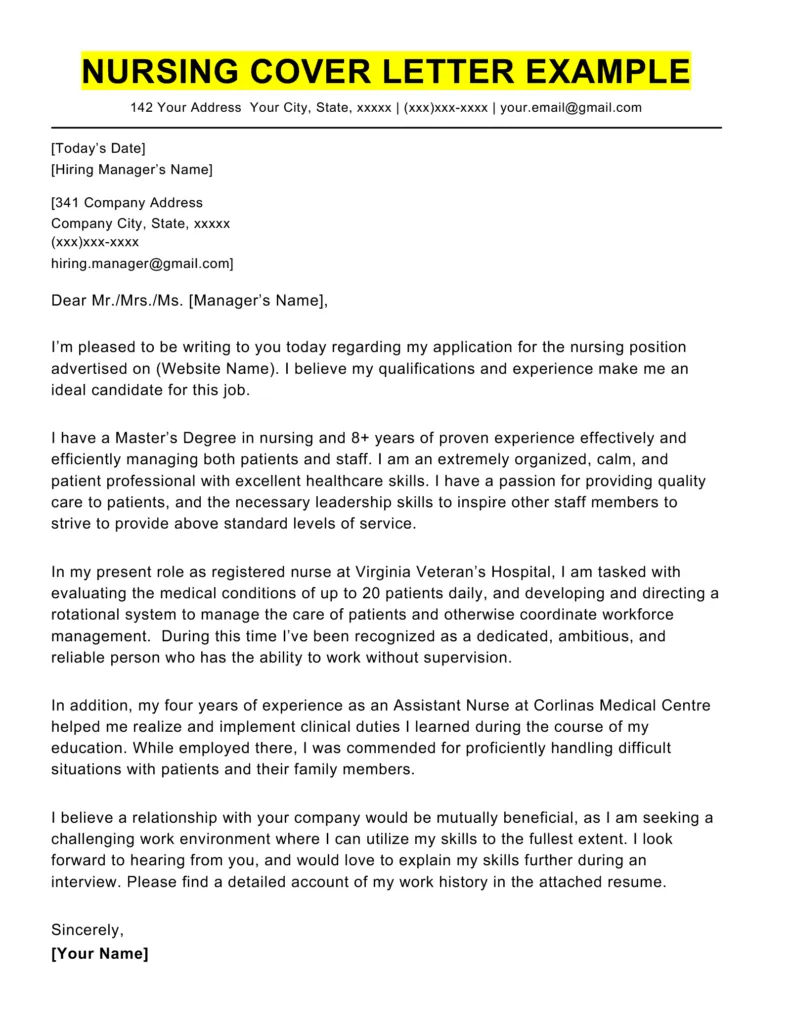
Use a professional font such as Times New Roman, Arial, or Calibri in a readable size (11-12 points). Use standard margins (1 inch) and single-space your text, with a space between paragraphs. Break up long blocks of text with short paragraphs and bullet points to improve readability. Ensure your name and contact information are clearly displayed at the top of the letter. Use a clear and concise writing style, avoiding overly complex sentences or jargon. An easy-to-read cover letter is more likely to be read by busy hiring managers. Ensure that the overall look and feel of your cover letter are clean, professional, and consistent with your resume.
Proofreading and Editing
Proofreading and editing are critical steps in the cover letter writing process. Typos, grammatical errors, and inconsistencies can undermine your credibility and damage your chances of getting an interview. Before you submit your cover letter, carefully proofread it multiple times. Read it aloud to catch any awkward phrasing or sentence structure. Use a grammar and spell checker, but don’t rely on them entirely; they can miss subtle errors. Ask a friend, family member, or career counselor to review your cover letter and provide feedback. Fresh eyes can often spot errors that you might miss. A polished cover letter shows that you pay attention to detail and are committed to presenting yourself in the best possible light. Proofreading is crucial.
Call to Action and Follow-up
Your cover letter should end with a clear call to action. State that you are eager to learn more about the position and are available for an interview at their earliest convenience. Express your appreciation for their time and consideration. Providing a call to action encourages the hiring manager to take the next step. Avoid being overly aggressive. A polite and professional call to action is more effective. If the job posting specifies how to apply or who to contact, be sure to follow those instructions. This action shows you are serious about the position.
Expressing Enthusiasm
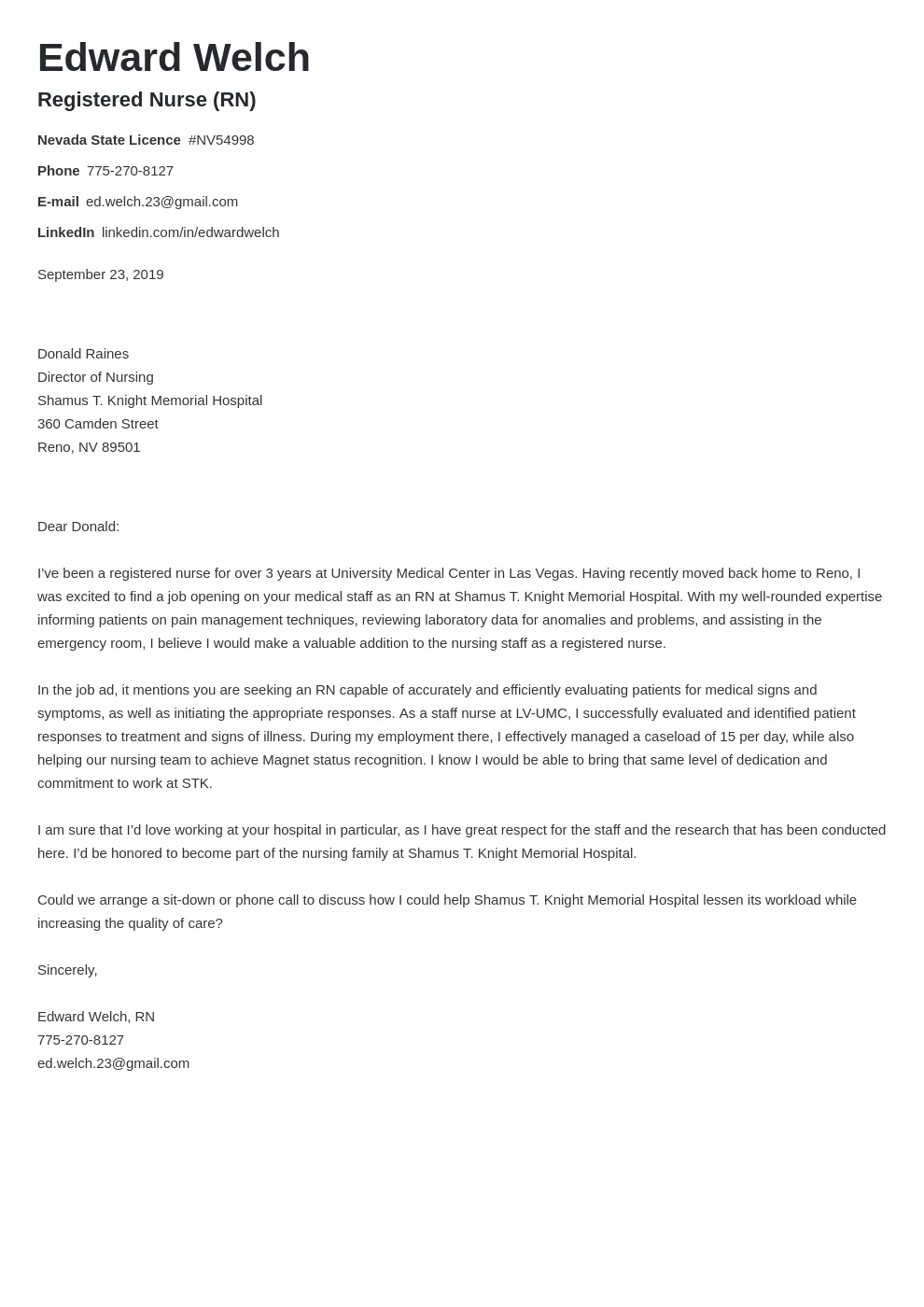
Show your genuine enthusiasm for the position and the healthcare facility. Avoid generic statements. Instead, convey your excitement for the specific opportunity and the potential to contribute to the organization’s mission. Mentioning something specific about the facility or the role that excites you helps to demonstrate that you are genuinely interested. Expressing enthusiasm also shows your passion for nursing. This can be achieved through your choice of words and tone throughout the cover letter. The goal is to leave a lasting positive impression and signal that you will be an enthusiastic and engaged employee. Show that you are more than just qualified; you are interested.
Following Up After Submission
After submitting your cover letter and resume, follow up with the employer to reiterate your interest and inquire about the status of your application. A follow-up email or phone call is an excellent way to stay on the employer’s radar. It demonstrates your proactive nature and commitment to the role. Send your follow-up within a reasonable timeframe, usually one to two weeks after submitting your application. In your follow-up, briefly reiterate your interest in the position, express your gratitude for their time, and inquire about the timeline for making a decision. Keep your follow-up concise and professional. Following up demonstrates your continued interest and commitment.
